𝗖𝗲𝗹𝗲𝗯𝗿𝗮𝘁𝗶𝗻𝗴 𝗜𝗻𝗻𝗼𝘃𝗮𝘁𝗶𝗼𝗻 𝗮𝘁 𝗦𝗣𝗔𝗥𝗞 𝟮𝟬𝟮𝟱
On Saturday, August 2nd, we witnessed an incredible showcase of student ingenuity at the SPARK Challenge, held in Colombo.
This event brought together some of the brightest young innovators tackling real-world challenges through sustainable and scalable engineering solutions. We are proud to announce this year’s winners:
Champions – Team Zypher
Project: BSFix – A Revolutionary Black Soldier Fly (BSF) Farming Unit
Led by Demitha Manawadu, Team Zypher introduced a compact, odor-controlled, and scalable BSF system to convert organic waste into animal feed and compost. Their solution combats methane emissions, supports SDG 13 (Climate Action), and promotes circular economy practices.
1st Runners-Up – Team Dyson Sphere
Project: SEIAN – Smart Energy Integration and Automation Network
Led by Rusula Oshadha Pathirana, this team designed an intelligent, fault-tolerant inverter system that maintains grid stability during outages and supports the growth of decentralized renewable energy systems.
2nd Runners-Up – Team Rysera
Project: URO MONITOR – Smart Urine Output Monitoring System
Led by Sahan Cooray, Team Rysera developed an IoT-enabled medical device to automate urine output tracking in ICUs and dengue wards—boosting accuracy, reducing nurse workload, and improving patient care in Sri Lanka’s hospitals.
Congratulations to all the winning teams for your innovation, teamwork, and commitment to engineering solutions that matter. The SPARK Challenge continues to be a launchpad for real impact!
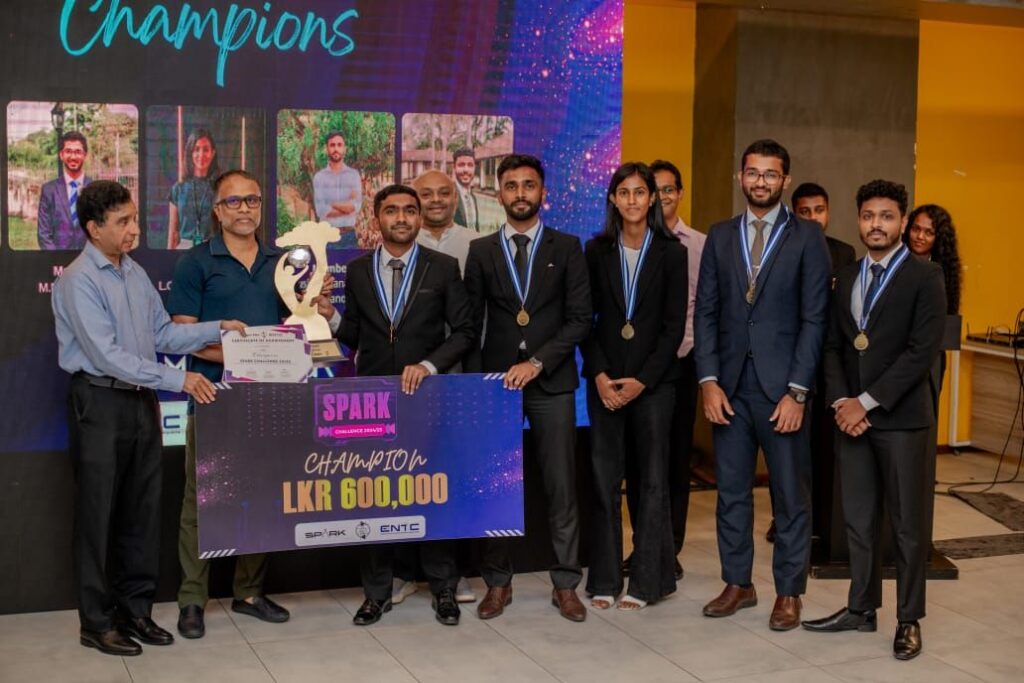
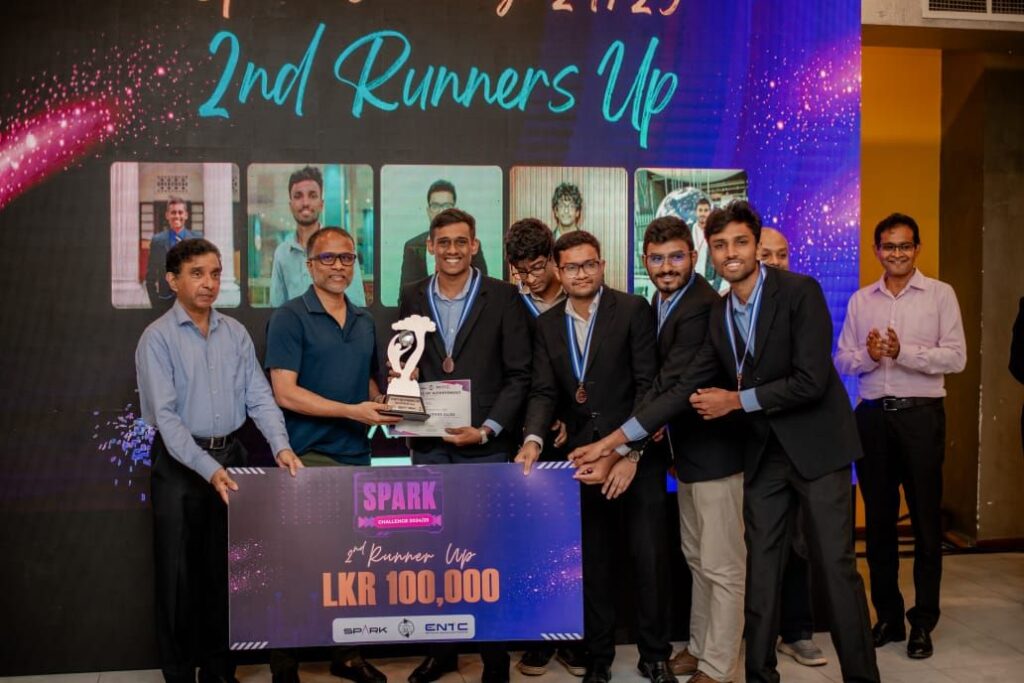
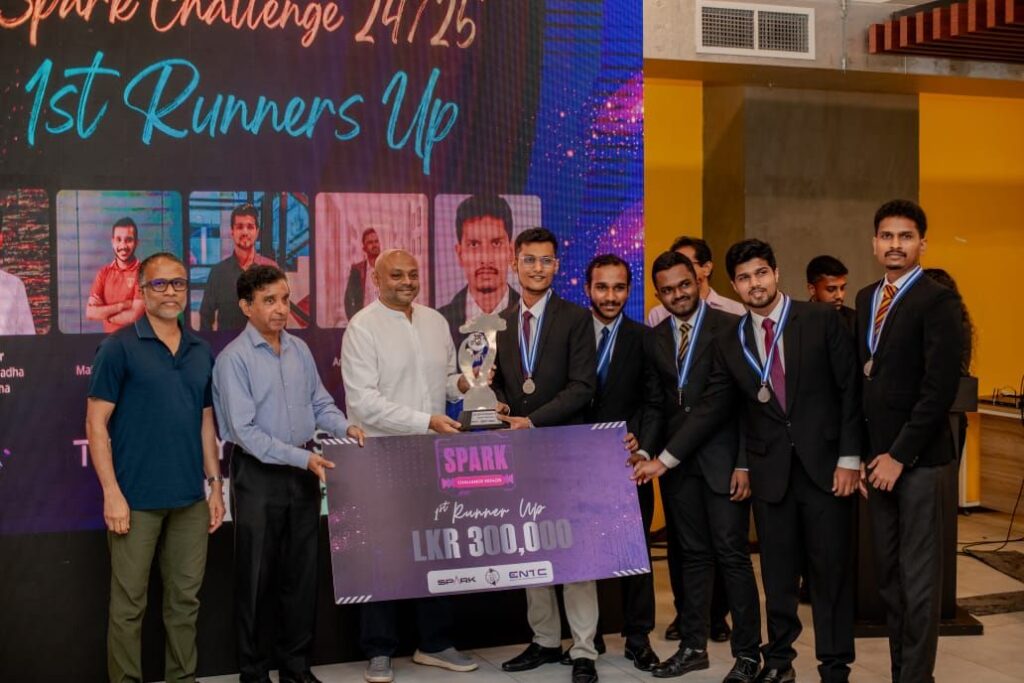
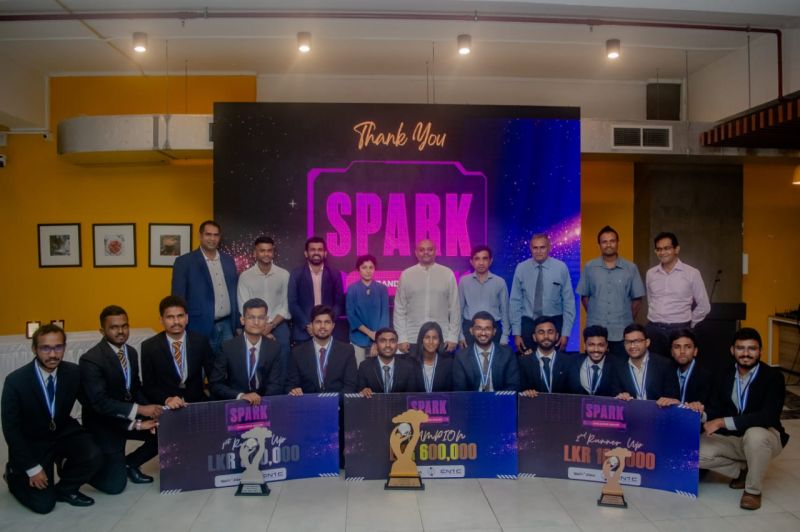
Inspiring Young Minds with Raspberry Pi!
Students from the Department of Electronic and Telecommunication Engineering, University of Moratuwa, conducted hands-on Raspberry Pi workshops at Jaffna Hindu College and Hartley College, sparking curiosity and innovation in the next generation.
With the guidance of our undergraduates, these young learners eagerly explored the world of computing—writing their first lines of code, experimenting with hardware, and unlocking new possibilities. The excitement in their eyes was the best reward! 🎉
As part of our commitment to sustainable and responsible innovation, we also donated Raspberry Pis to the schools, ensuring that the learning continues beyond the workshop. This initiative was proudly supported by SPARK at UoM, reinforcing our mission to empower future leaders through technology.
🔗 Together, we’re shaping a brighter, tech-driven future!
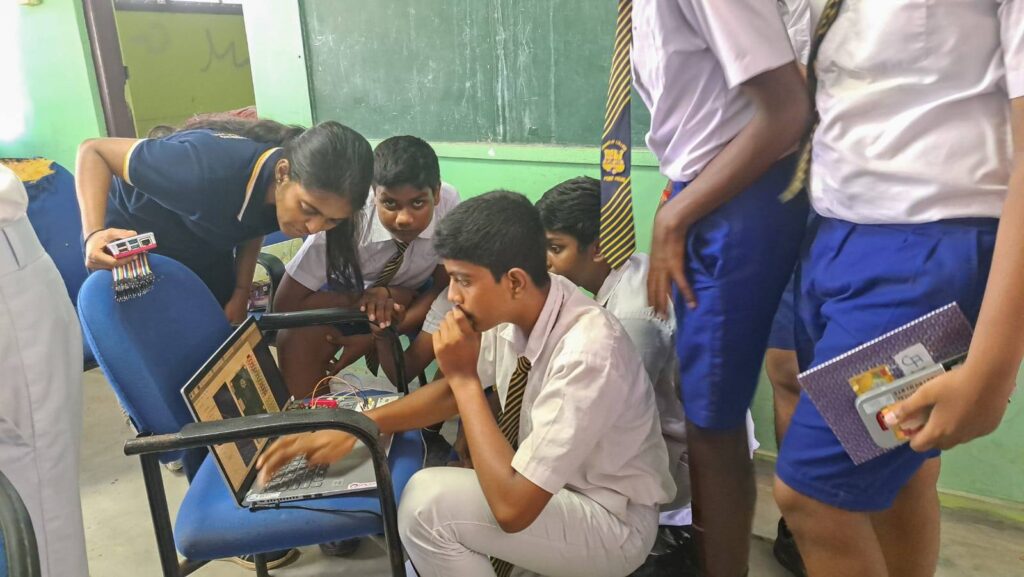



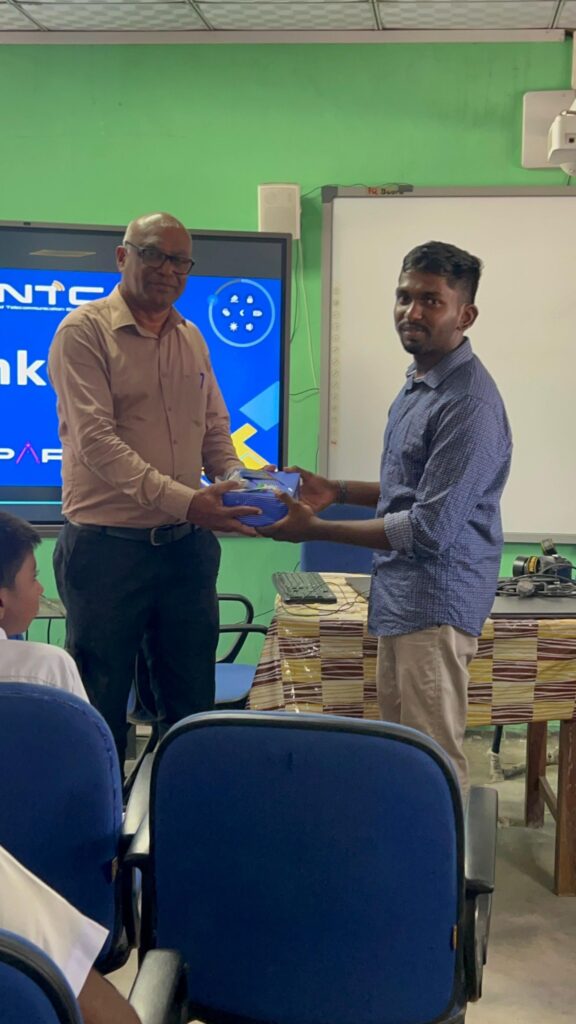
Championing Sustainability at SPARK Challenge 2024: Top Innovations in Agri-Voltaics, Energy Efficiency, and More
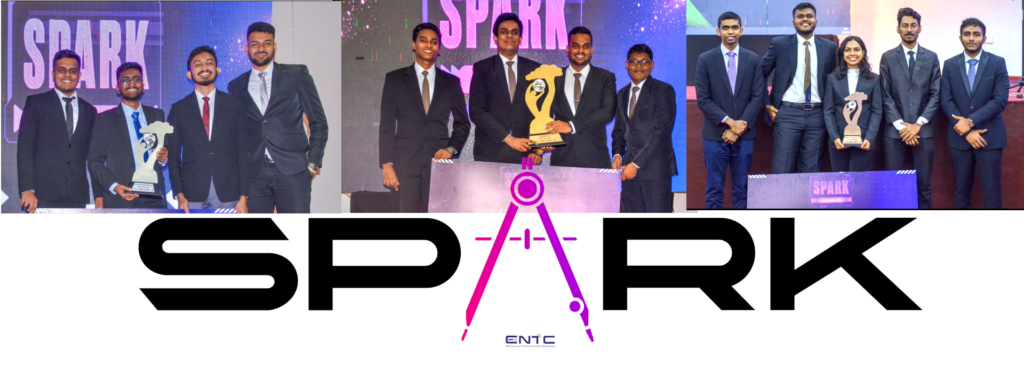
Intriguing innovations in agri-voltic systems, farm animal health, industrial energy efficiency, and simple measuring for health management convinced the judges as the most innovative products and ideas at the SPARK Challenge 2024. Spark Challenge is an innovation competition that encourages the entrants to develop unique, socially and environmentally responsible solutions by applying technology to extend and preserve communities and ecosystems. It aims to deliver solutions that safeguard our planet’s limited resources and mitigate the harmful effects of human existence. The grand finale was on 28 September 2028. The team that proposed a system for making a solar farm and agriculture co-exist emerged as the champions.
This winning project integrates solar energy production with sustainable agriculture to address Sri Lanka’s energy and agricultural challenges. By combining solar panels with high-yield crop cultivation, it maximizes land use, enhances crop yields, and minimizes water waste. Equipped with IoT-based monitoring, predictive maintenance, and smart drip irrigation, it ensures efficient solar output and healthy crops. This agro-plan model, guided by GIS data, recommends optimal crop choices and solar panel layouts for specific areas. This solution promotes energy independence, job creation, and food security while reducing carbon emissions and reliance on crude oil, supporting sustainable development goals.
The product that became the first runners up is a smart solution for poultry farms, using machine learning, cloud integration, and thermal imaging to monitor poultry health and behavior in real-time. It detects early disease signs and tracks animal performance, enabling timely action to reduce losses and improve productivity. Sensor data on temperature, air quality, and movement is analyzed in the cloud, with insights accessible through a mobile app to support sustainable, climate-aligned farming. An IoT-based energy monitoring solution for small and large enterprises won third place. It addresses energy efficiency and cost management challenges. It features real-time data acquisition, predictive maintenance, and AI-driven insights for energy optimization. With a modular design, it reduces energy costs, streamlines management, and aligns with sustainable development goals, supporting clean energy, responsible consumption, and climate action.
Looking ahead, the SPARK Challenge 2024 highlights the potential of technology-driven solutions to tackle some of today’s most pressing environmental and social challenges. The innovative projects showcased—spanning sustainable agriculture, animal health management, and industrial energy efficiency—offer a glimpse into a future where resource conservation and eco-friendly practices are the norm. As these pioneering ideas gain traction, they pave the way for transformative changes that can enhance food security, reduce carbon footprints, and promote sustainable development across diverse sectors, fostering a more resilient and sustainable world for future generations.
Read MoreENTC Team Wins the RISC-V based Design & Verification Challenge at DVCon
Team BitWeavers from the Department of Electronic and Telecommunication Engineering of the University of Moratuwa was able to become the winner of the global design contest “C-DAC’s VEGA microprocessor (RISC-V) based Design & Verification Challenge” organized by the DVCon India 2024 Design and Verification Conference. The team consists of Supun Dasantha Kuruppu, Anuki Pasqual, and Dakshina Tharindu from the Department of Electronic and Telecommunication Engineering.
This contest for university students aimed to encourage innovation in digital system design and verification. Over the span of 5 months, the teams were required to design, verify, and implement a custom AI accelerator to accelerate a vision transformer model for a malware detection application. The accelerator would then be interfaced with the VEGA AS1061 CPU indigenously developed by C-DAC (Center for Development of Advanced Computing, India) and implemented on a Genesys 2 FPGA board. The contest was divided into 3 stages, with 20 teams out of 120 being selected for Stage 2A and 9 teams being selected for Stage 2B.
Team BitWeavers comprising Anuki Pasqual, Dakshina Tharindu, and Supun Kuruppu was able to successfully implement and run the full system and achieve an overall 3x reduction in inference latency compared to the pure CPU execution, surpassing the performance of all other teams. They were the only team from Sri Lanka to reach the top 3 and were given the opportunity to attend the DVCon India 2024 conference held in Bangalore, India on the 18th and 19th of September 2024 and demonstrate their accelerator. They received praise from both the organizing committee and the audience for their impressive performance.
The Department of Electronic and Telecommunication Engineering has always been a pioneer in electronics innovation in Sri Lanka. The team attributed their success to the comprehensive digital system design pathway taught at the department, which gave them the theoretical and practical knowledge that was instrumental in successfully building the accelerator.
The team also thanked the DVCon India team for providing a massive learning experience through this contest, assisting them in the implementation process, and giving them the opportunity to connect with experts from the industry and academia through the conference.
In 2023, ENTC became the 1st runners up.
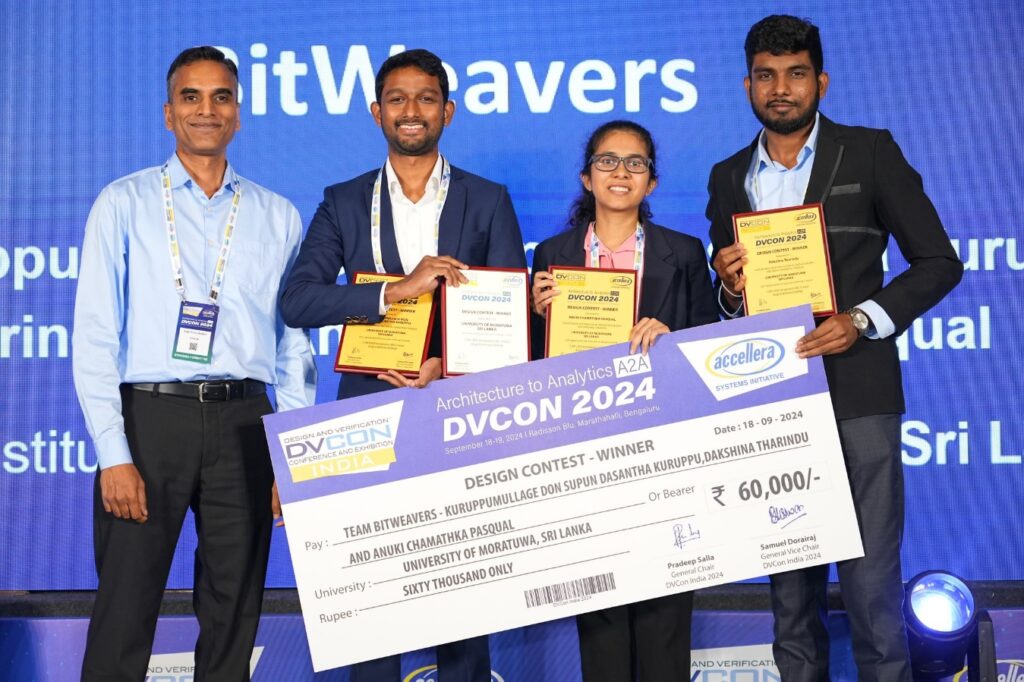
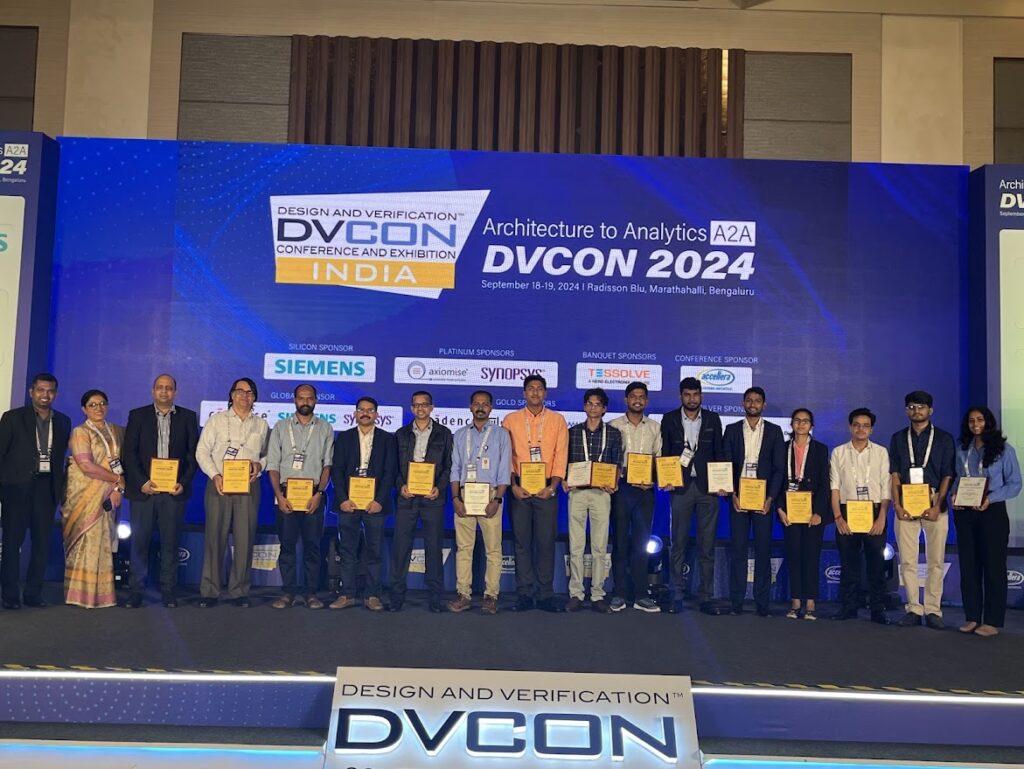
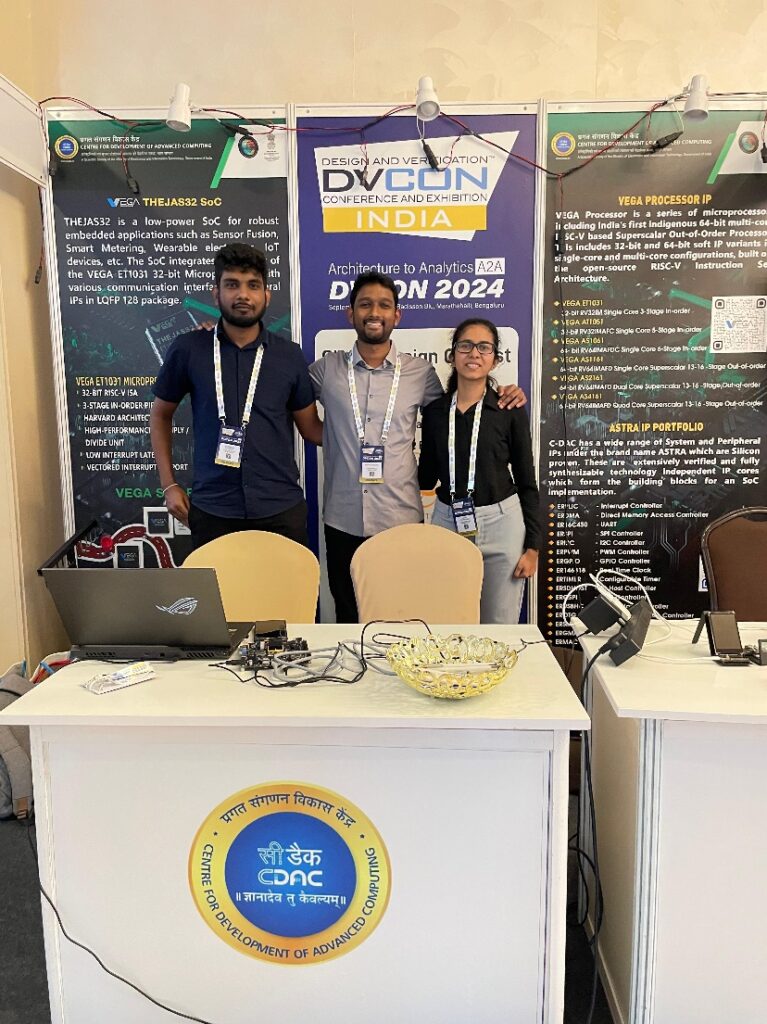
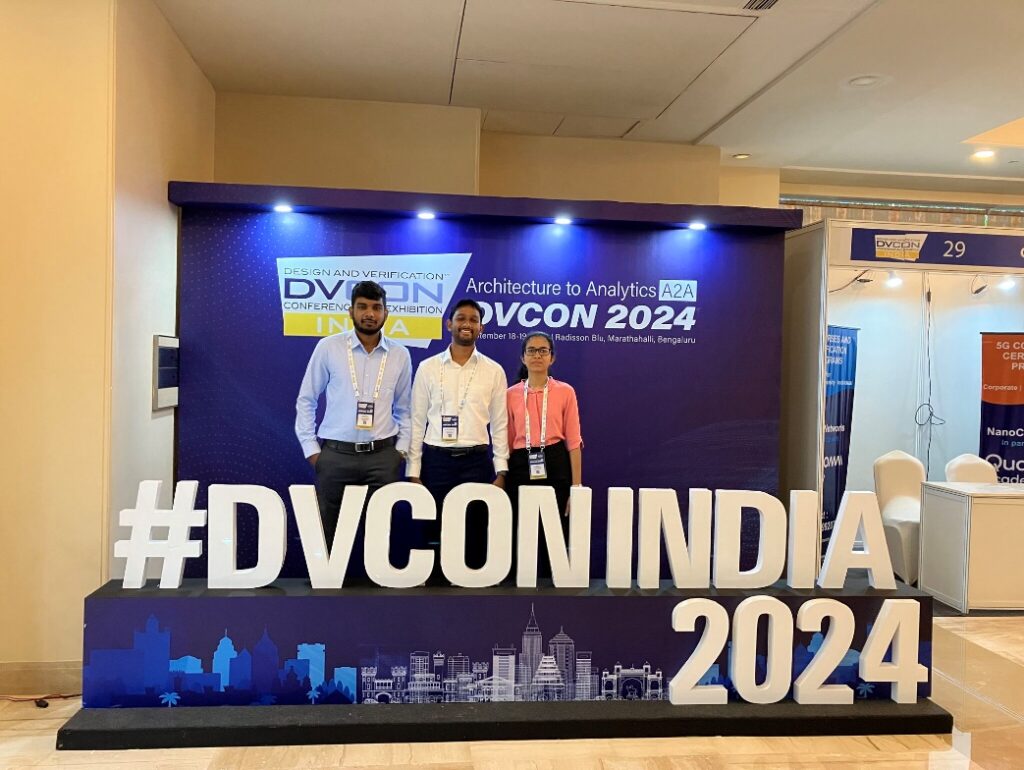
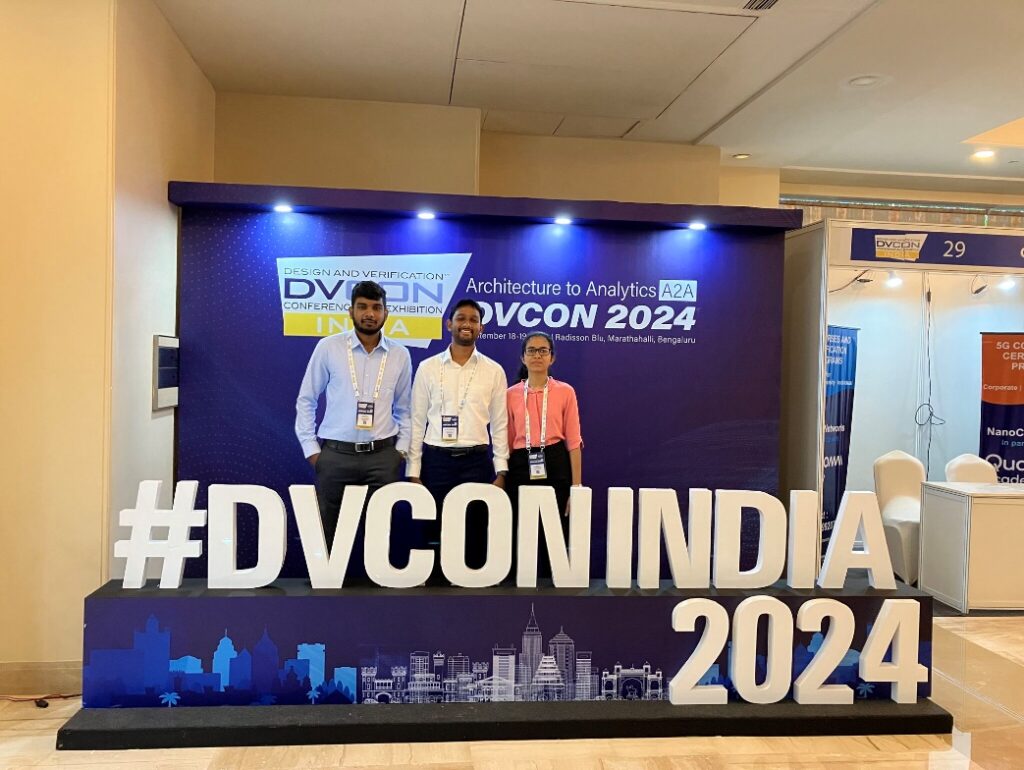
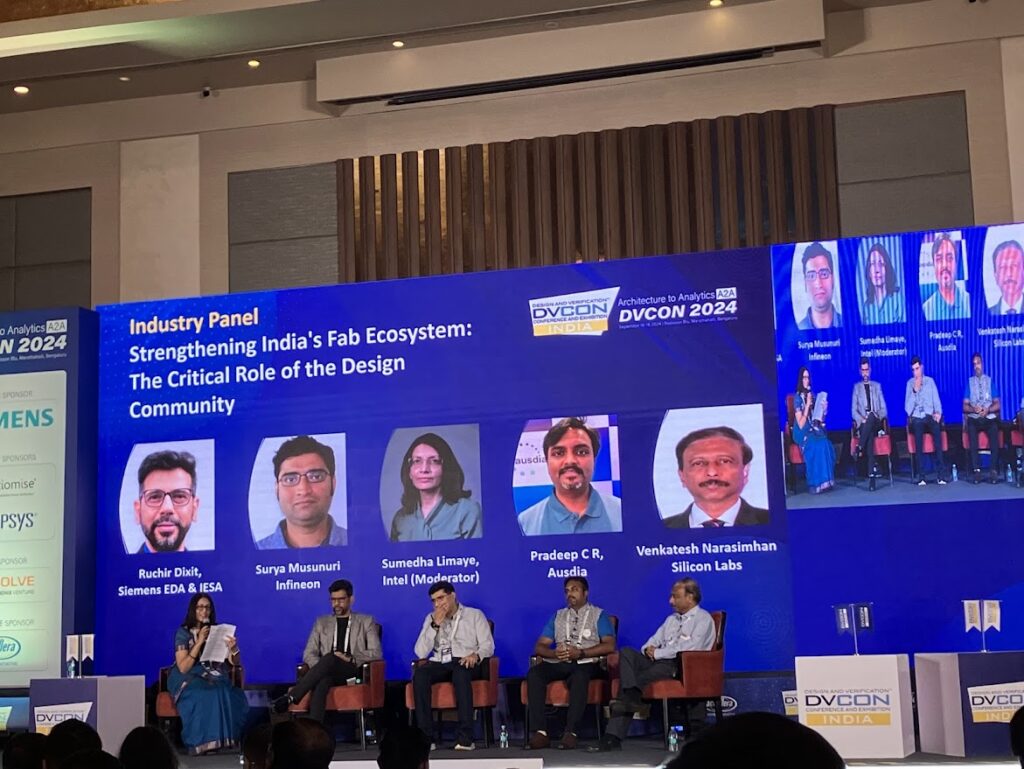
University of Moratuwa Enhances Innovation with Raspberry Pi 4 Model B Gifting
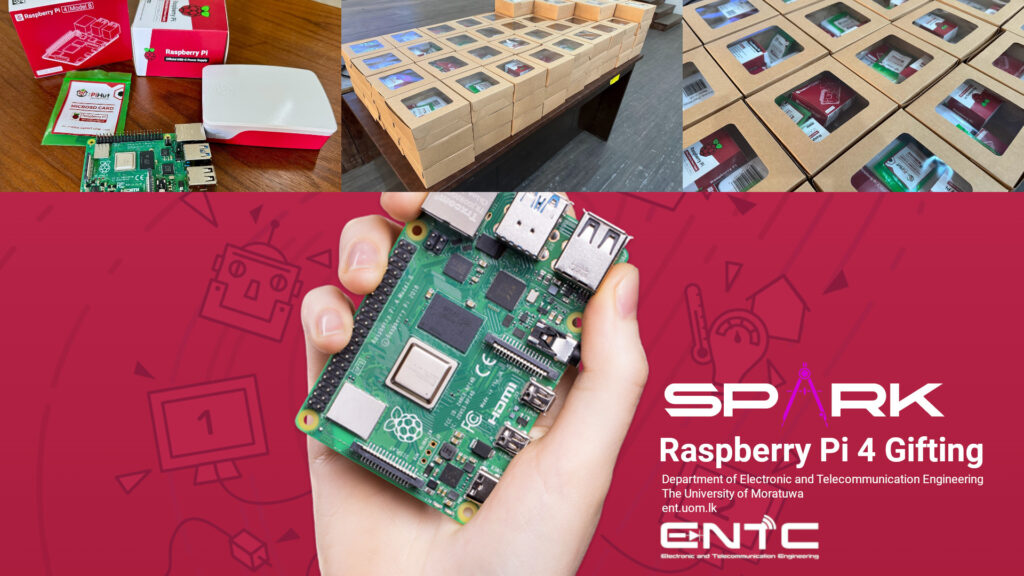
Moratuwa, Sri Lanka – March 14, 2024 – In a significant step towards fostering technological innovation and hands-on learning, the Department of Electronic and Telecommunication Engineering at the University of Moratuwa has gifted Raspberry Pi 4 Model B kits to all 115 students of the 2021 intake. This initiative is a part of the SPARK program, which aims to encourage students to engage in innovative projects and challenges.
The Raspberry Pi 4 Model B, renowned for its robust capabilities, offers students a versatile platform for a wide range of projects. Equipped with a quad-core Cortex-A72 (ARM v8) 64-bit SoC, LPDDR4-3200 SDRAM, and dual-display support at resolutions up to 4K via a pair of micro-HDMI ports, the Raspberry Pi 4 is a powerful tool for developing complex computing solutions. Its gigabit Ethernet and USB 3.0 connectivity also make it suitable for high-speed data transfer and network projects.
The head of the department, highlighted the significance of this initiative, stating, “The Raspberry Pi 4 Model B kits provide our students with the essential tools to explore, innovate, and create. These devices will not only assist them in their coursework but also inspire them to participate in the SPARK Challenge and other innovative activities.”
Innovative Projects and Real-World Applications
The Raspberry Pi has already been instrumental in several notable student projects at the university. One such project, sponsored by Dialog Axiata PLC, is the Virtual Cycling Project. Utilizing a VR headset, this project enables users to experience virtual cycling through Sri Lanka’s breathtaking mountainous routes. The Raspberry Pi served as the primary controller, showcasing its potential in virtual reality applications.
Another impressive project involved digital IC replication, where the Raspberry Pi generated patterns to train a neural network module, demonstrating its capability in advanced digital signal processing and machine learning applications.
There have been numerous such project using Pis.
The SPARK Challenge: Driving Innovation
The SPARK Challenge is a yearlong endeavor designed to encourage students to develop unique and novel products that address the adverse effects of climate change. The challenge emphasizes the creation of sustainable solutions and aims to foster the growth of new commerce and industry in Sri Lanka. Teams of five students will present their solutions to external specialists in a format reminiscent of “Shark Tank” or “Dragons’ Den.”
To support the students, the SPARK program and the department provide comprehensive training and resources, including:
– Modern Design Workshops: Eight facilitated workshops that help teams formulate and deliver strong, innovative solutions.
– Briefing Sessions on UN Sustainable Development Goals (UN-SDGs): Guidance on developing sustainable products and services.
– Agile Methodology Training: Enabling rapid iteration of software and hardware solutions.
Dr. Ajith Pasqual expressed his optimism about the program, stating, “The SPARK Challenge is a platform for our students to not only demonstrate their technical skills but also to create impactful solutions that can drive sustainable development in Sri Lanka. We are excited to see the innovative ideas that will emerge from this initiative.” Nisitha Silva, Vice President of the Electronic Club that runs the SPARK program too spoke.
Fostering Future Innovators
By providing the Raspberry Pi 4 Model B kits, the University of Moratuwa is investing in the future of its students, equipping them with the tools needed to excel in the rapidly evolving tech landscape. This initiative aligns with the university’s commitment to fostering innovation, creativity, and practical problem-solving skills among its students.
The SPARK program and the gifting of Raspberry Pi kits symbolize a forward-thinking approach to education, where students are encouraged to push the boundaries of what is possible and contribute to the technological and industrial growth of Sri Lanka.
For more information on the SPARK program and the innovative projects at the University of Moratuwa, please visit [University of Moratuwa – Department of Electronic and Telecommunication Engineering.
Read MoreRenowned Expert Prof. Anna Förster Enlightens University of Moratuwa on Sustainable Communication Networks
Prof. Anna Förster, a distinguished researcher from COMNETS, University of Bremen, Germany, graced the halls of the University of Moratuwa on Wednesday, February 7th, 2024, captivating attendees with her insights into Sustainable Communication Networks and postgraduate study prospects in Germany.

Addressing an audience in the Electronic and Telecommunications department, Dr. Förster delved into her pioneering research, which focuses on self-organizing and autonomous sensor networks, opportunistic networks, and underground sensor networks. Utilizing a blend of artificial intelligence techniques such as machine learning and swarm intelligence, she sheds light on various aspects of wireless communication protocols and applications.
One of the highlights of Dr. Förster’s research is its practical applications, aimed at contributing to the global achievement of Sustainable Development Goals. These applications span decision agriculture, environmental monitoring, safety monitoring, health applications, and more. Additionally, her work emphasizes the usability of Internet of Things (IoT) applications to maximize their impact and utility.
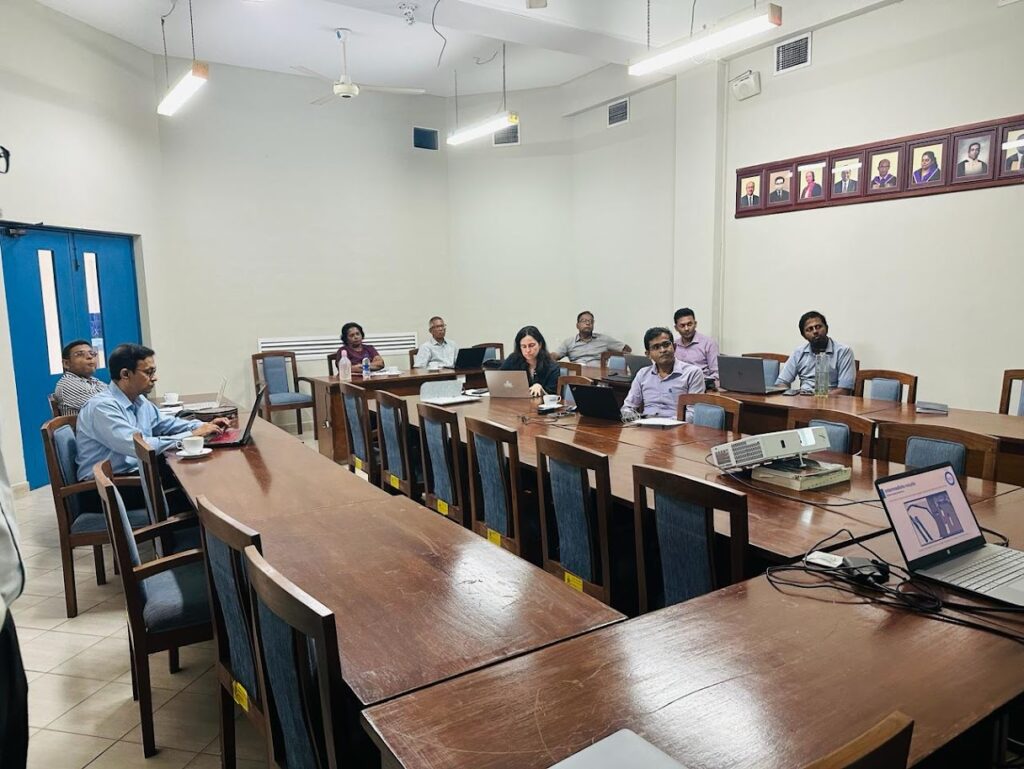
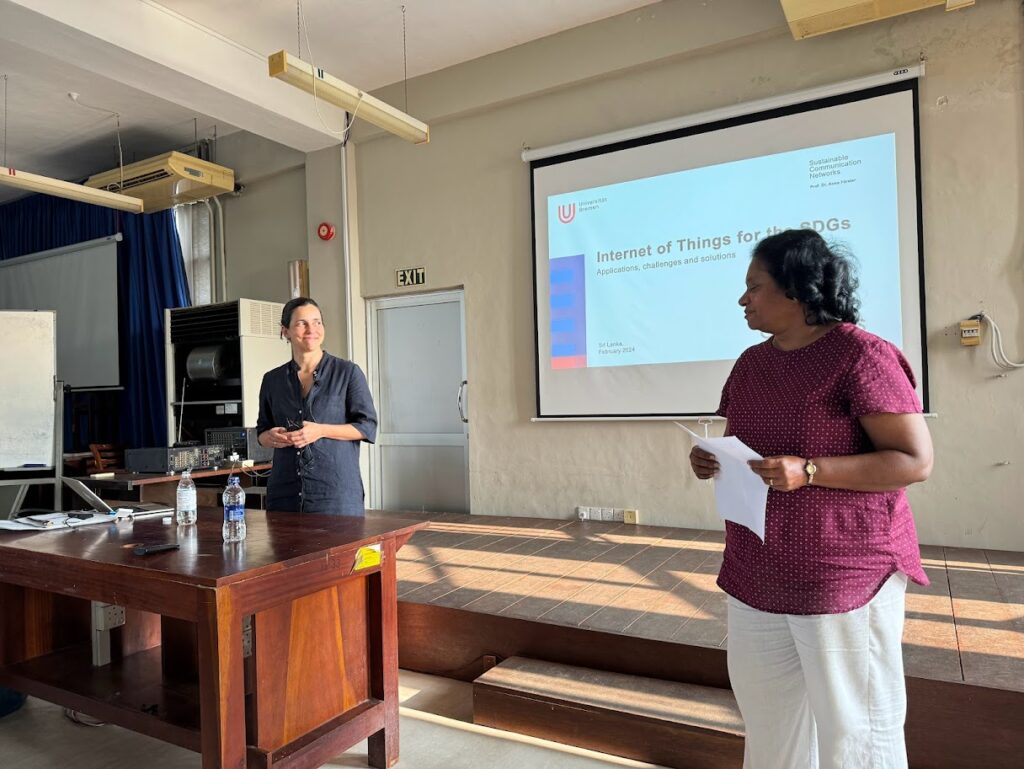
During her visit to the University of Moratuwa, Dr. Förster engaged in multifaceted activities, including providing feedback on final-year project mid-evaluations and delivering illuminating talks on her research on sustainability and IoT. Furthermore, she shared invaluable insights into studying in German universities, offering aspiring scholars a glimpse into the educational opportunities available in her home country.
Read MoreUniversity of Moratuwa’s ENTC Undergraduates Shine at 2024 Carrier Fair
The Department of Electronic and Telecommunication Engineering (ENTC) at the University of Moratuwa is proud to announce the success of their annual Carrier Fair, held on January 5, 2024. This event brought together talented ENTC undergraduates from Batch 19 and leading companies, fostering connections and opening doors to exciting opportunities.
The Carrier Fair served as a platform for Batch 19 students to showcase their skills and potential to prospective employers. The event provided a valuable opportunity for companies to connect with the University of Moratuwa’s brightest minds and identify future talent ready to tackle the challenges of tomorrow’s workforce.
Highlights of the Event:
- ENTC undergraduates from graduating class interacted with representatives from leading companies.
- Students gained valuable insights into the industry and explored potential career paths.
- Companies identified highly skilled and motivated individuals to join their workforce.
The University of Moratuwa continues its tradition of excellence in nurturing future engineers. The ENTC department’s commitment to providing students with practical experience and industry exposure ensures they are well-equipped to succeed in their chosen fields.


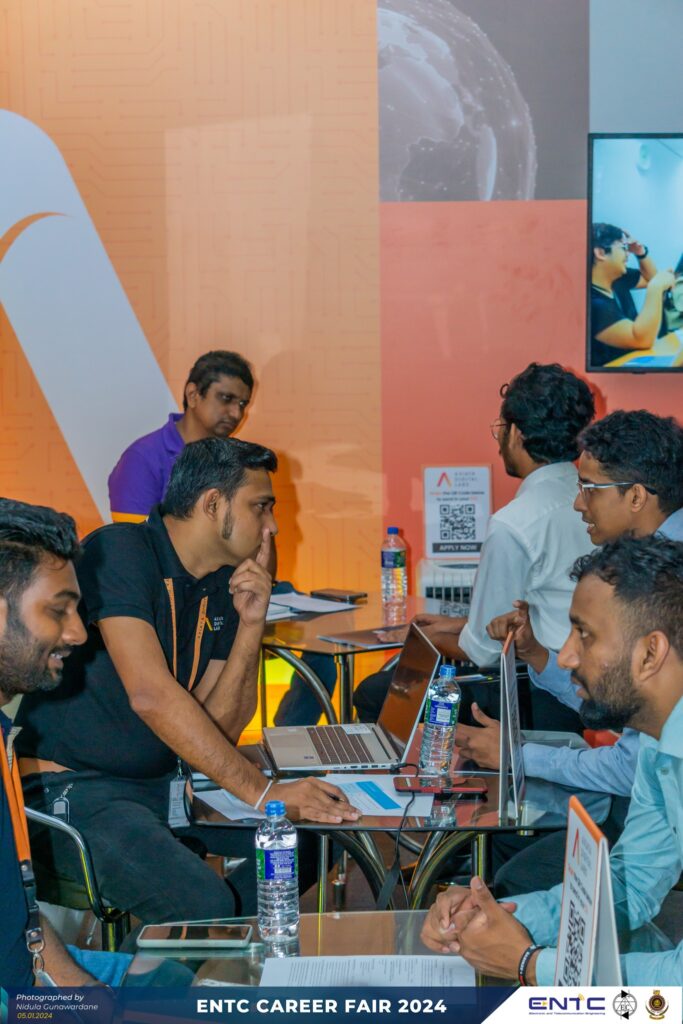


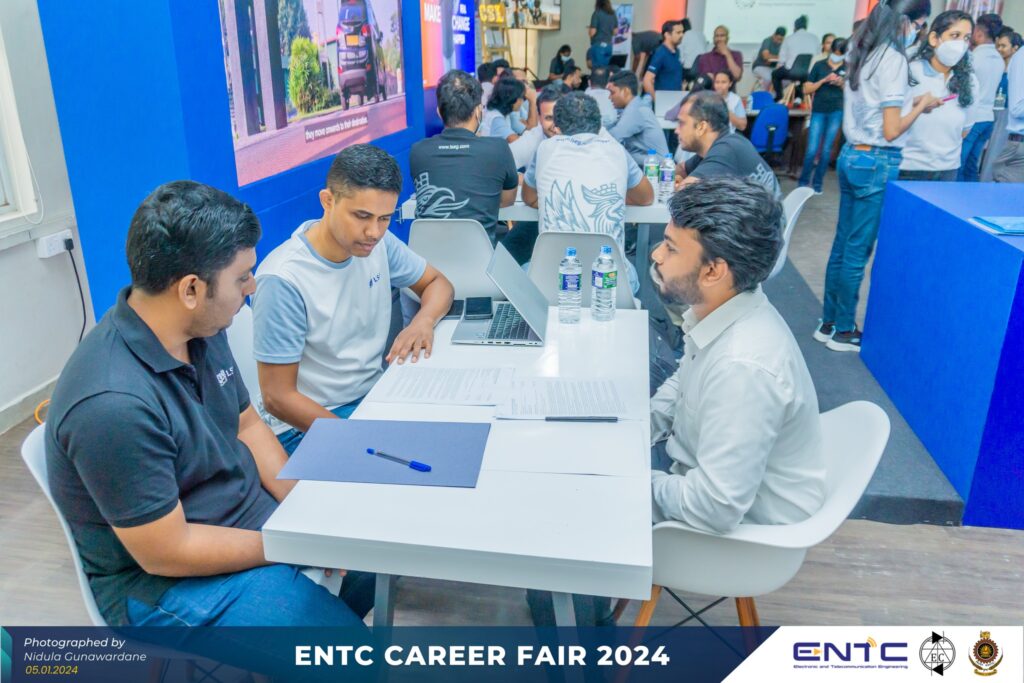
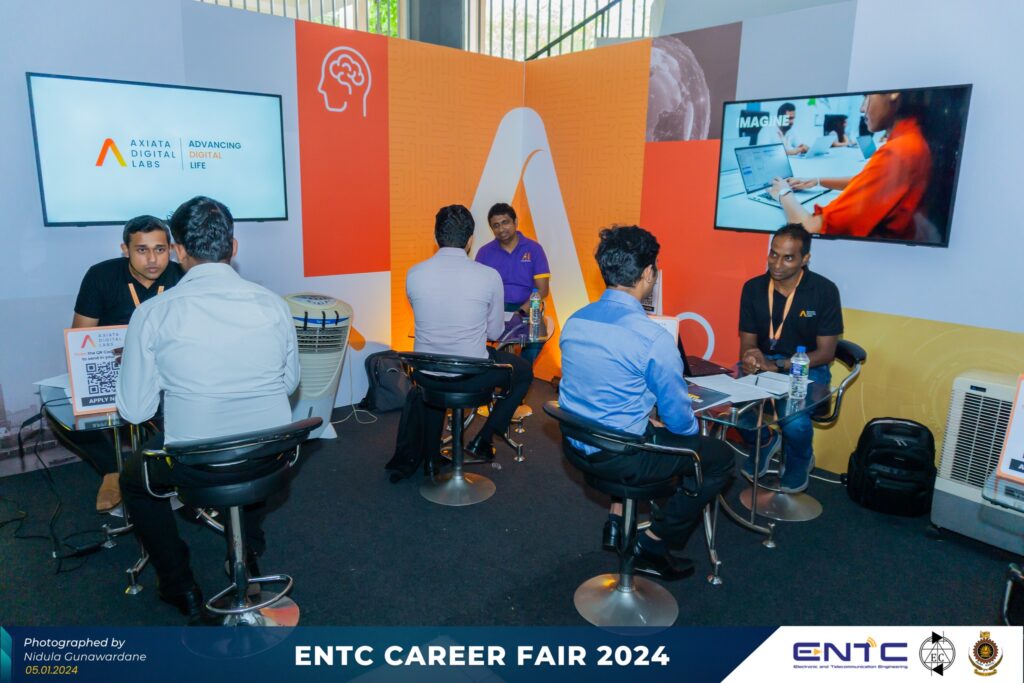
ENVOYAGE 2023: A Confluence of Ideas and Innovation
Colombo, Sri Lanka – October 30, 2023
ENVOYAGE 2023, an industry forum and dinner organized by the Electronic Club of the Department of Electronic and Telecommunication Engineering (ENTC) at the University of Moratuwa, unfolded with resplendence and fervor at the prestigious Galadari Hotel on Lotus Road, Colombo 01.
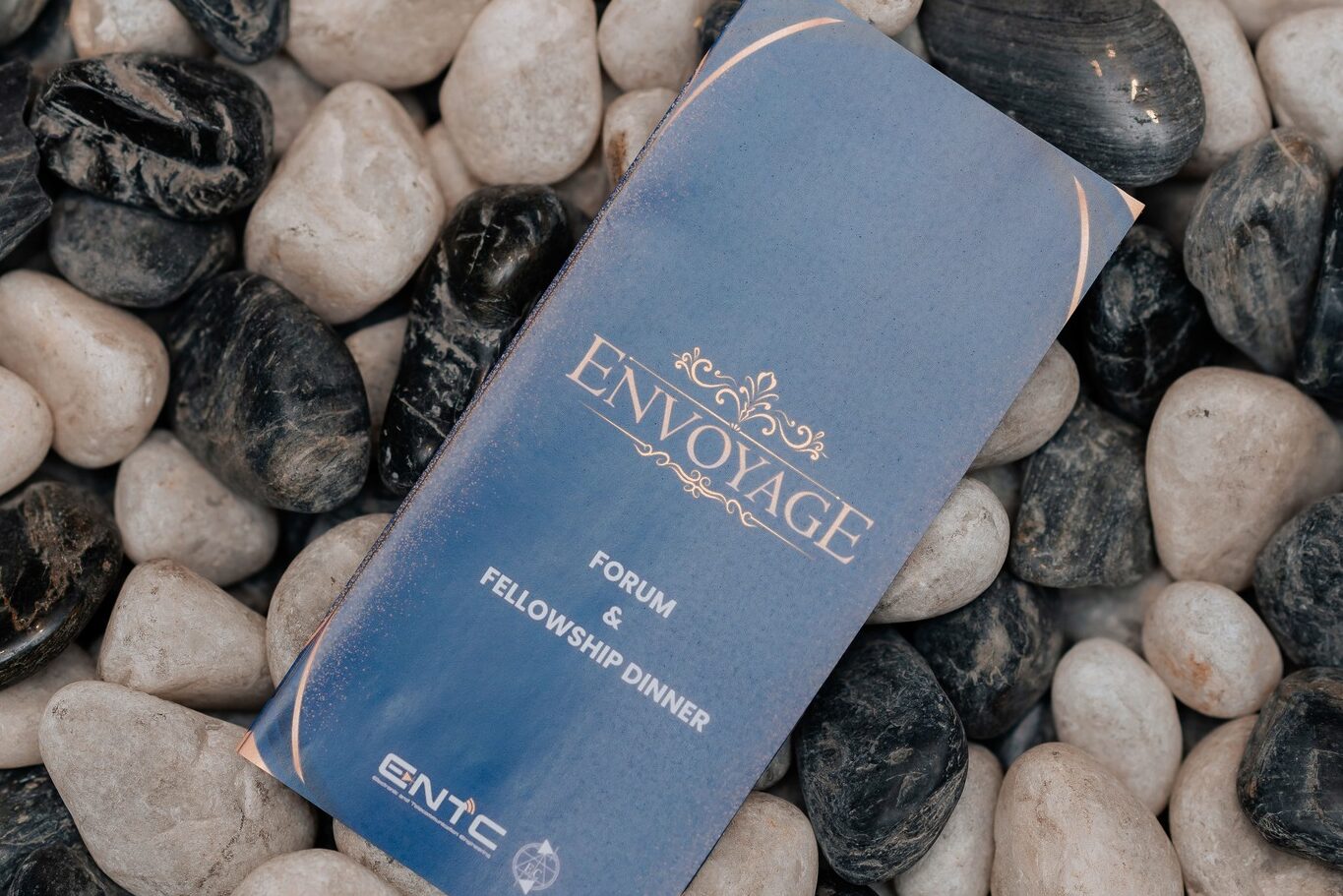
Gathering a diverse cohort of academic luminaries, ENTC alumni, industry leaders, and students, the event served as a dynamic platform for dialogue, collaboration, and insight into the future of the electronic and telecommunication industries.
Participants engaged in lively discussions, envisioning the future of electronic and telecommunication engineering. Collaboration between academia and industry was emphasized, driving innovation, and addressing challenges. For students, ENVOYAGE 2023 offered insights from industry leaders, networking opportunities, and a chance to navigate the field confidently. The event balanced academia with entertainment, fostering camaraderie through interactive sessions and cultural performances. Attendees bonded, reflecting the vibrant spirit of the ENTC community. ENVOYAGE 2023’s success highlights the department’s dedication to excellence and its role in shaping Sri Lanka’s engineering landscape. Departing participants carry renewed inspiration, committed to advancing knowledge and technology in the industry.






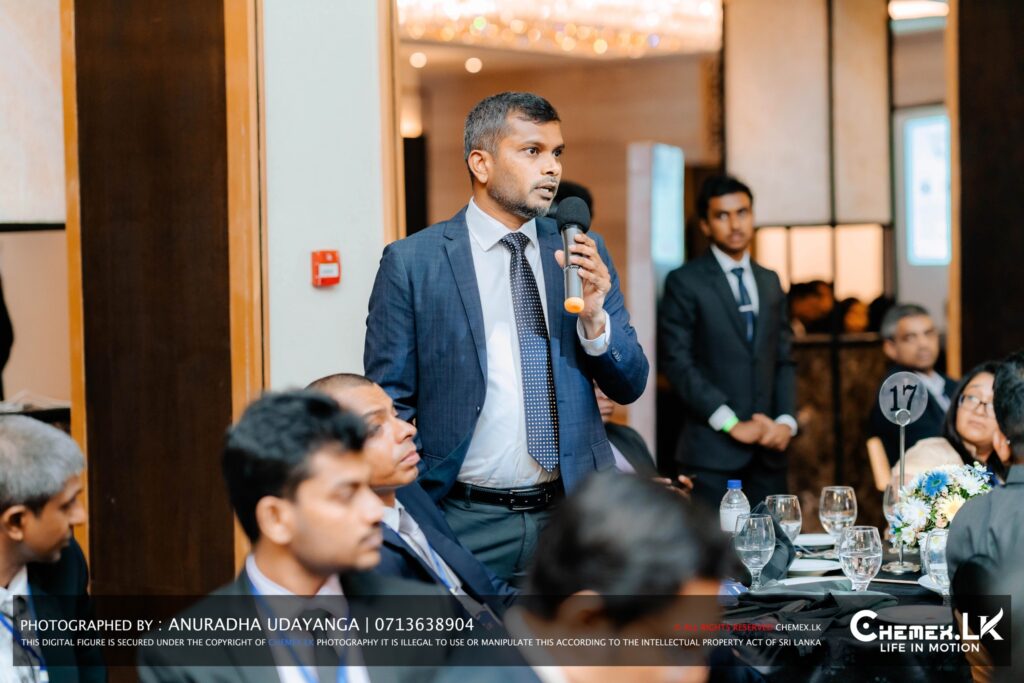
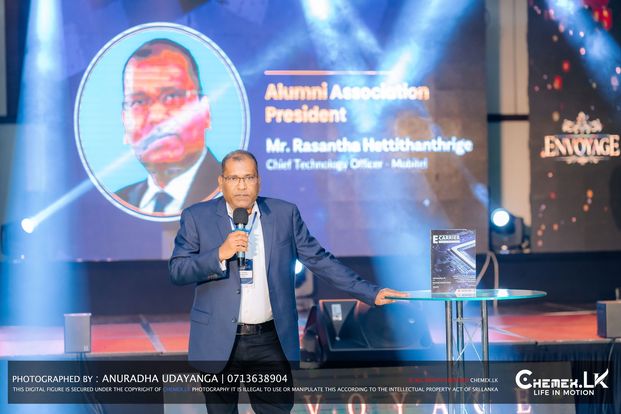
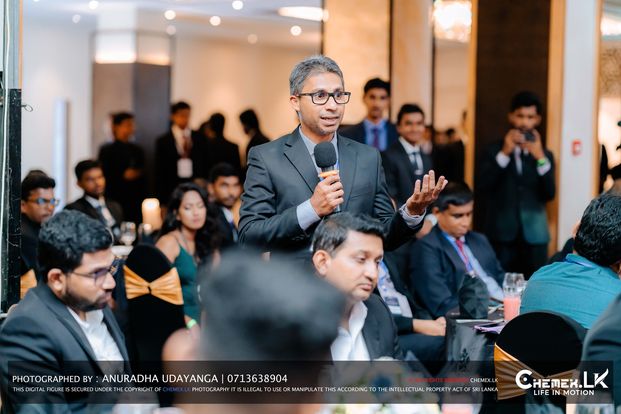
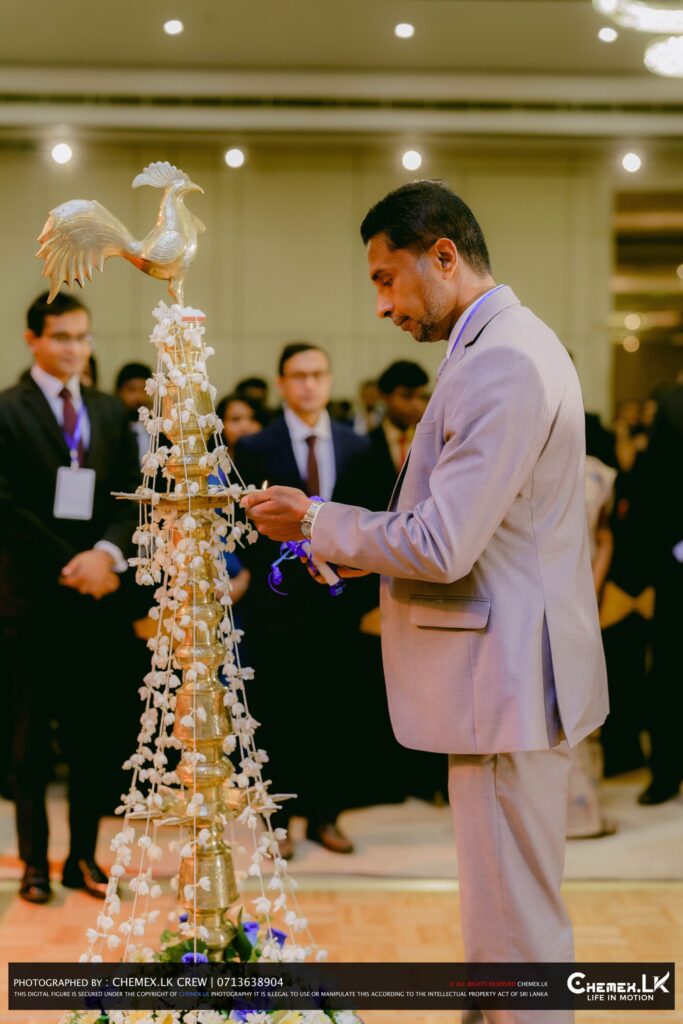
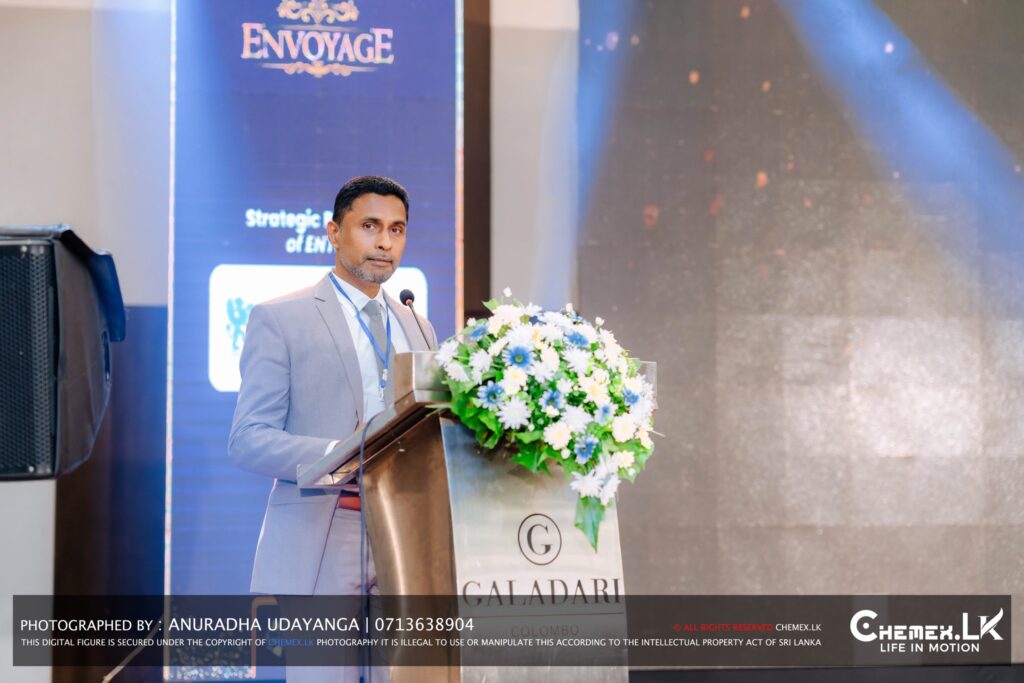
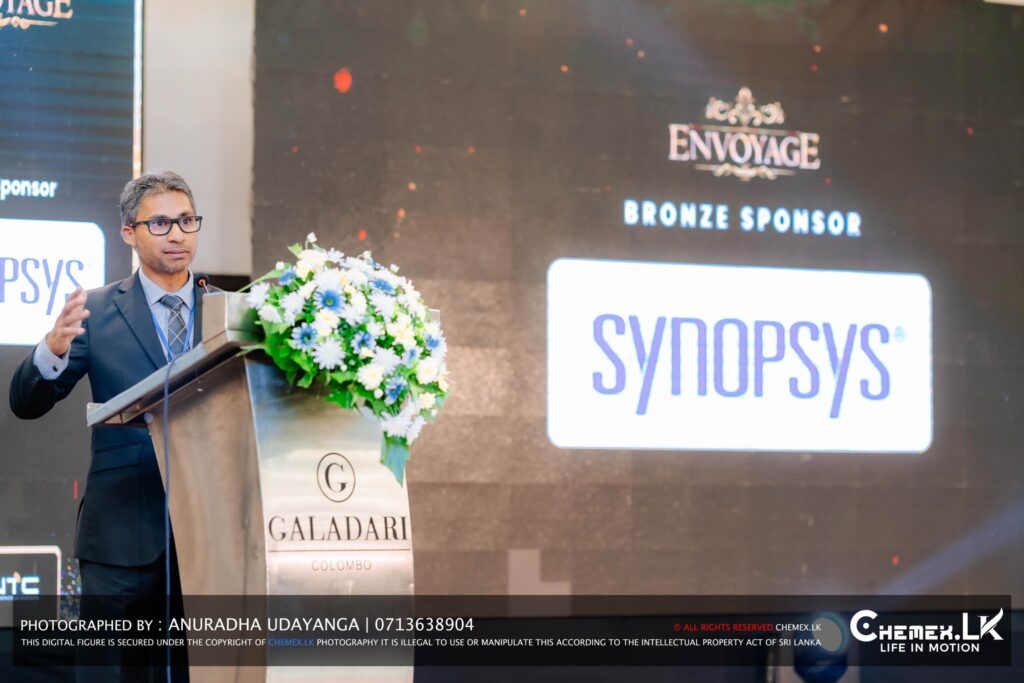
ExMo Engineering Exhibition 2023
The Faculty of Engineering at the University of Moratuwa organized the ExMo engineering exhibition from 27th to 29th July 2023. The event was a grand success, with as many as 50,000 attendees including students from other universities, school children, parents, and technology enthusiasts.
All the departments of the faculty participated in the exhibition, showcasing their innovative projects and research. The Department of Electronic and Telecommunication Engineering was one of the major attractions at the event. The exhibits included final-year projects, Spark projects, Sri Lanka Robotics Challenge (SLRC) projects, biomedical engineering projects, and other innovative endeavors.
In addition to these exhibits, ENTC hosted boot camps related to machine learning (ML), Internet of Things (IoT), and Arduino. These boot camps provided participants with in-depth knowledge and practical skills in an entertaining manner.
Attendees were taken on guided tours of Analog, Digital, Telecom, SLT-Mobitel, UAV, and Biomedical laboratories. During these tours, laboratory equipment and associated projects were showcased.
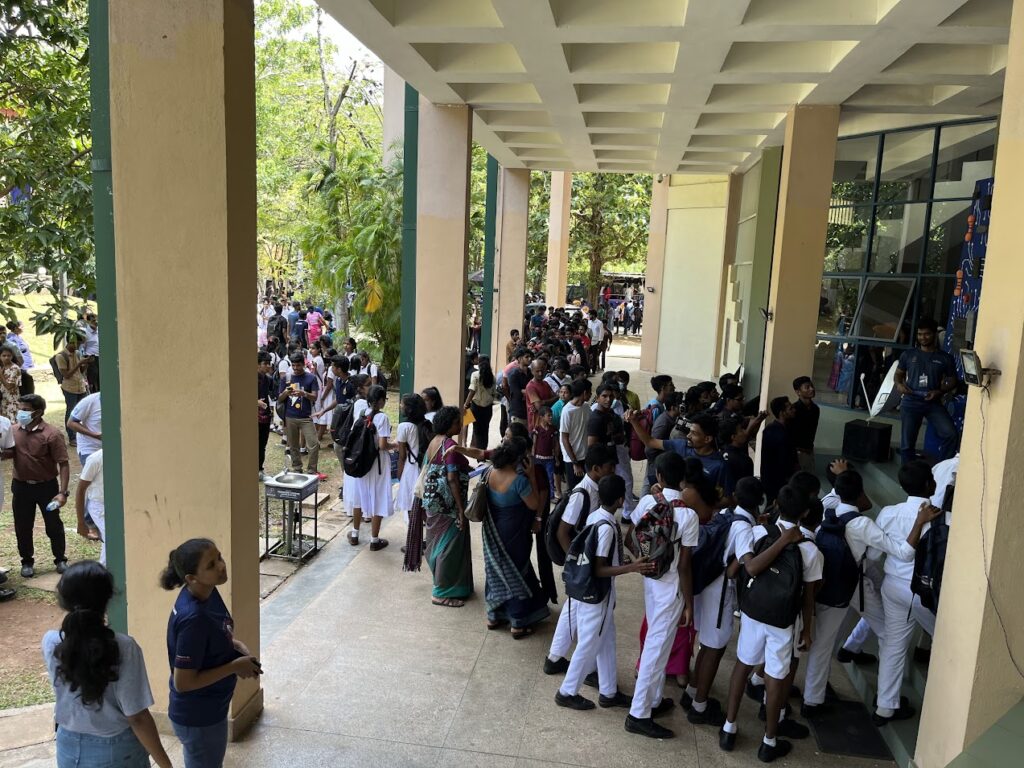
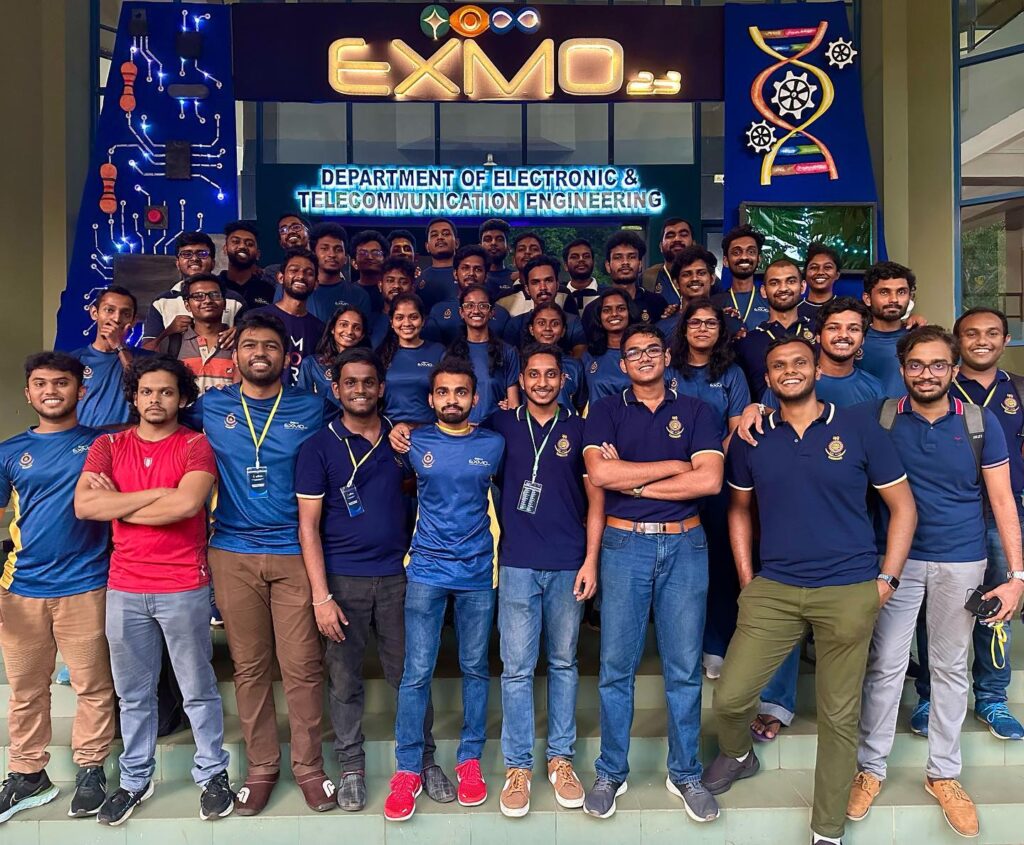
The ExMo engineering exhibition was a platform for students to showcase their technical skills and creativity in designing and building innovative projects. It was also an opportunity for technology enthusiasts to learn about the latest trends in engineering and allied disciplines. The success of the event is a testament to the quality of education and research offered by the Faculty of Engineering at the University of Moratuwa.
ENTC ExMo video is here.
Read MoreDepartment Receives a Laboratory Equipment Upgrade with Four Tektronix TBS1052 Oscilloscope
The Department of Electronic and Telecommunication Engineering of the University of Moratuwa has received a laboratory equipment upgrade with four Tektronix TBS1052 Oscilloscopes. The oscilloscopes were acquired through funding from the SPARK project, which seeks to recognize individuals and groups who devise unique, innovative, socially, and environmentally responsible solutions that foster significant positive transformations in society, industry, and the broader environment. The TBS1052 Oscilloscope is a digital storage oscilloscope that provides affordable performance in a compact design. It comes with a 7-inch WVGA TFT color display, up to 2 GS/s sampling rate, bandwidth of 50 MHz, and dual channel frequency counters.
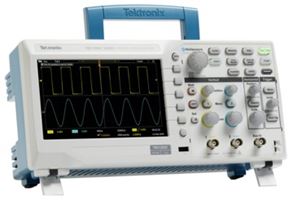
The Department of Electronic and Telecommunication Engineering has about 25 workstations each in both analog and digital electronics laboratories, enabling about 50 students to be accommodated simultaneously. Each workstation has a dual-tracking power supply, an analog multimeter, a digital multimeter, a signal generator, and a digital storage oscilloscope. The new Tektronix TBS1052 Oscilloscopes will replace old ones and support regular laboratory classes and SPARK projects.
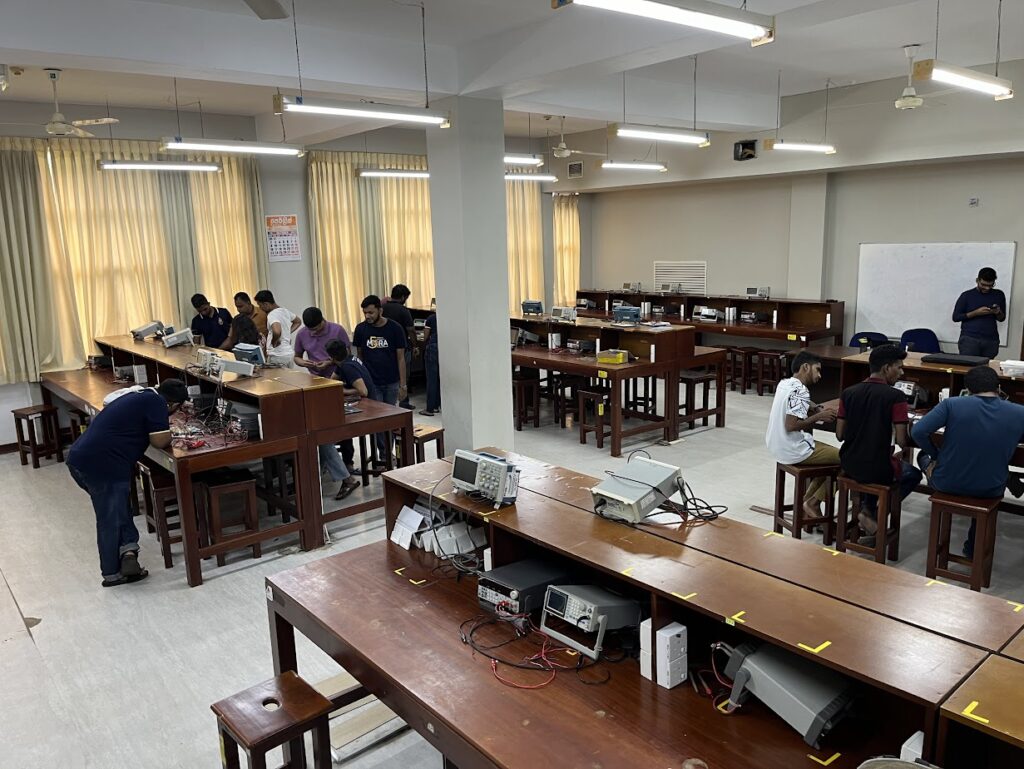
The University of Moratuwa has always been at the forefront of innovation and research in electronics, telecommunications, biomedical engineering, and allied disciplines in engineering. The success of the Department of Electronic and Telecommunication Engineering is a testament to the quality of education and research offered by the university.
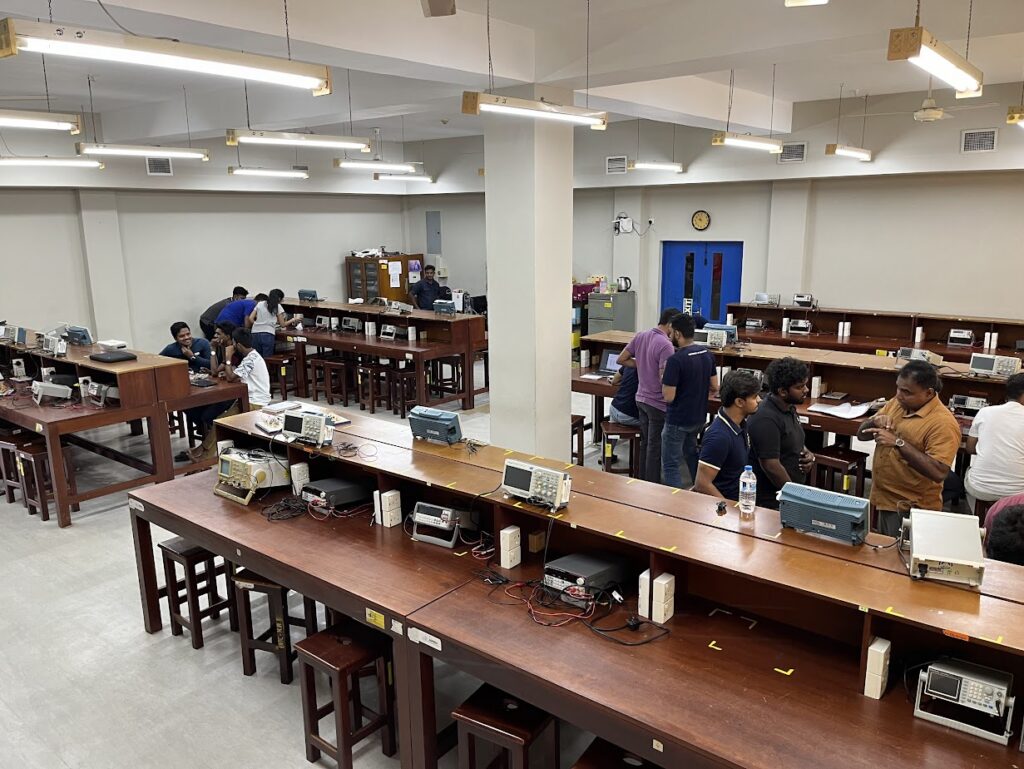
Picture source: https://www.tek.com/en/datasheet/digital-storage-oscilloscope-tbs1000c-series-datasheet
Read More
